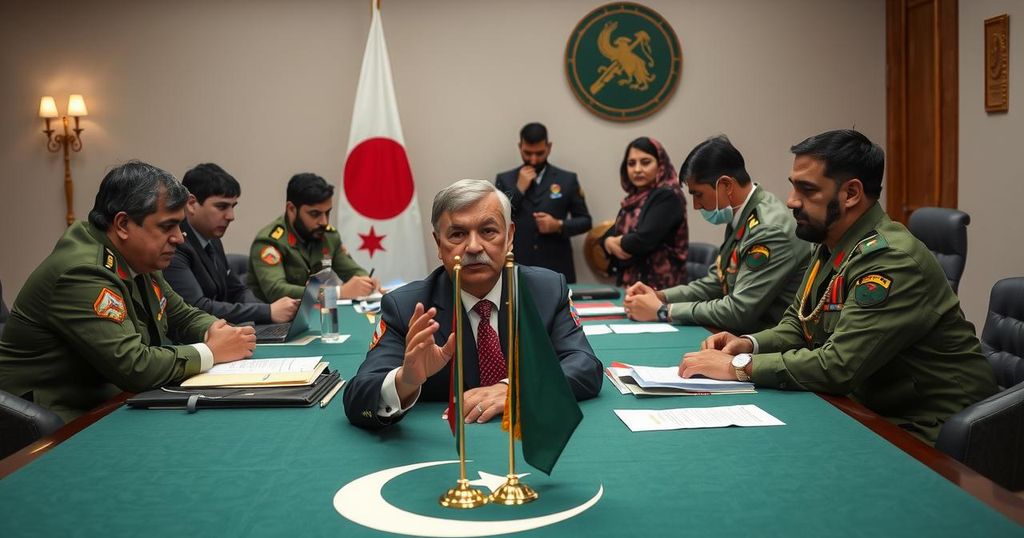Afghanistan’s foreign office summoned Pakistan’s envoy over airstrikes in Paktika, which killed civilians and displaced persons according to Afghan officials. Pakistan claimed the strikes targeted TTP camps. Diplomatic relations are strained, with mutual accusations regarding terrorism and border security complicating dialogue efforts.
The recent tensions between Afghanistan and Pakistan escalated following airstrikes conducted by Pakistani forces in Paktika province. Afghanistan’s foreign office summoned the Pakistani head of mission in Kabul to formally protest these strikes, emphasizing that they targeted suspected camps of the Tehreek-i-Taliban Pakistan (TTP). Afghan officials reported that the strikes resulted in civilian casualties, including local residents and displaced Pakistani nationals, while Pakistan maintained that the operations targeted terrorists. The situation has further strained relations, highlighting the ongoing disputes regarding border security and terrorism apprehensions. Additionally, diplomatic dialogue efforts were underway between the two nations, yet the strikes have complicated these discussions.
The relationship between Pakistan and Afghanistan has been historically fraught with challenges, particularly concerning border security and the presence of militant groups. The Tehreek-i-Taliban Pakistan (TTP) has been a significant point of contention, with Pakistan accusing Afghanistan of harboring TTP members who launch attacks on Pakistani territory. Despite recent diplomatic engagements aimed at resolving outstanding issues, incidents like airstrikes and retaliatory claims continue to disrupt progress, underscoring the fragility of the bilateral relationship.
In conclusion, the airstrikes in Paktika province by Pakistani forces have exacerbated already tense relations between Afghanistan and Pakistan. Both nations have expressed contrasting narratives regarding the impacts of these military actions, indicating a profound mistrust and ongoing security concerns. As diplomatic efforts continue, the need for constructive dialogue and cooperative counterterrorism strategies remains paramount to achieving stability in the region.
Original Source: www.dawn.com






